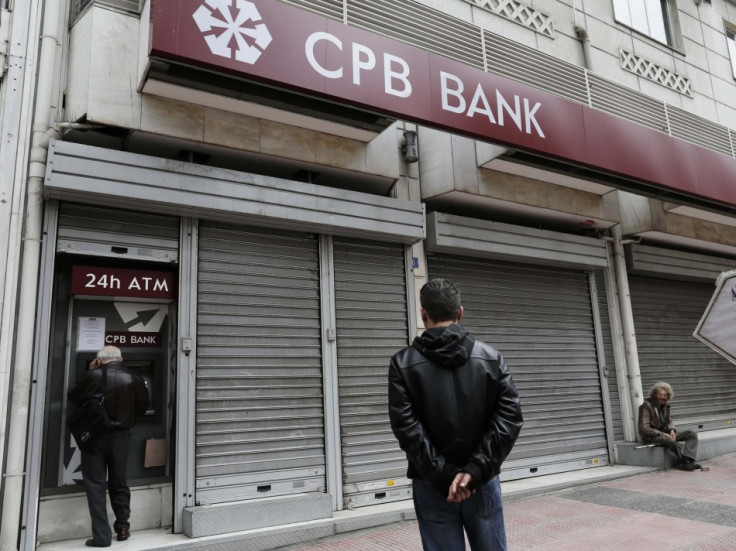Cyprus Parliament Approves Banking Reforms to Secure Bailout
Country must generate €5.8bn to secure €10bn bailout fund

Legislators in Cyprus have passed bills to reform the country's banking sector in order to secure essential bailout funds from the International Monetary Fund and fellow eurozone countries.
The island nation must secure €5.8bn (£4.9bn, $7.5bn) before it can access a €10bn bailout fund, without which the country will collapse when its banks reopen on Tuesday after a 10-day closure.
The bills approved include one to restructure the country's second-largest and most-troubled bank Laiki, one to restrict financial transactions during times of crisis, and one to set up a "solidarity fund" that would allow the pooling of state assets for an emergency bond issue.
The country plans to vote on further proposals over the weekend. These include a plan to impose a tax of less than 1 percent on all bank deposits.
The restructuring of Laiki will split the bank into two, and the sale of crisis-hit Greek branches of Cyprus banks is expected to reduce the amount the country needs to raise for the bailout.
"We are voting for the least worst option," said Averof Neophytou, deputy head of the governing DISY party.
"We owe an apology to the Cypriot people because we all share in the responsibility of bringing this place to this state."
Earlier the Cyprus parliament rejected a proposal to seize up to 10 percent of people's bank deposits. The plan had sparked widespread protests from citizens and from Russia, which has big investments in Cypriot banks.
Cyprus president Nicos Anastasiades is travelling to Brussels to present the revised package to the country's lenders, who could still reject it outright. Eurozone finance ministers and IMF chief Christine Lagarde are expected to hold a meeting on Sunday evening to discuss the bailout for Cyprus.
The European Central Bank (ECB) said that it will stop emergency funding to Cyprus banks by Monday if a new bailout plan is not in place.
Meanwhile, the country's attempt to secure funding from Russia has apparently failed, as Cyprus's finance minister Michalis Sarris returned empty-handed after three days in Moscow.
"We will only be ready to discuss various ways of support for that state only after the EU nations and Cyprus work out a final settlement," Russian Prime Minister Dmitry Medvedev told a press conference.
The crisis has prompted credit rating agency Moody's Investors Service to downgrade its ratings for Cyprus's Bank of Cyprus, Cyprus Popular Bank and Hellenic Bank to Caa3.
© Copyright IBTimes 2025. All rights reserved.






















